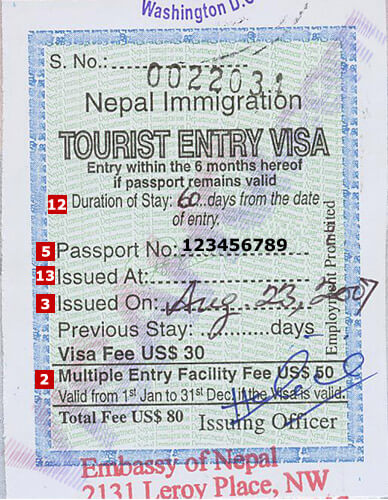Nepal Embassy list in Cameroon
Need help?Chat with us
Importance of Trip Registration at the Nepal Embassy
Registering your trip with the Nepal embassy is crucial for ensuring safety, effective communication, and access to support during emergencies. In case of natural disasters such as earthquakes or floods, having your travel information on file enables the embassy to provide timely assistance and updates. For instance, if there’s a sudden political unrest in the area you are visiting, the embassy can advise you on safety measures, evacuation routes, or shelter options. Moreover, in medical emergencies where swift action is required, registered travelers can receive prompt care and support from the embassy, facilitating rescue or medical arrangements. Overall, trip registration is a vital precautionary measure that can significantly enhance safety and peace of mind while traveling in Nepal or any other region.
Nepal Embassy FAQs
Can the Nepal embassy assist in legal issues abroad? Yes, the Nepal embassy can provide information and guidance regarding legal issues, including referrals to local lawyers. However, they cannot intervene directly in legal proceedings.
What should I do if I lose my Nepal passport in Cameroon? If you lose your Nepal passport in Cameroon, report the loss to the local authorities immediately. Then, contact the Nepal embassy for assistance in obtaining a replacement passport.
Do Nepalese citizens require a visa to enter Cameroon? Yes, Nepalese citizens require a visa to enter Cameroon. The embassy can provide detailed instructions on the visa application process.
What services are available for Nepalese citizens who are arrested in Cameroon? The embassy can provide support, including legal assistance and communicating with family members.
Services Provided by Nepal Embassies in Cameroon
Passport Services
- Issuance of new passports
- Renewal of existing passports
- Replacement of lost passports
Visa Issuance for Foreign Nationals
- Processing visa applications for short and long-term stays
Assistance in Legal or Medical Emergencies
- Guidance on legal issues and local lawyers
- Help in medical emergencies and hospital arrangements
Travel Alerts and Safety Updates
- Updates on the current safety situation in the country
- Travel advisories and alerts
Support for Nationals Detained Abroad
- Assistance and support for nationals facing detention
Summarized Diplomatic Presence
Nepal maintains a diplomatic presence in Cameroon primarily through its embassy located in Yaoundé. This mission plays a pivotal role in fostering bilateral relations between Nepal and Cameroon, promoting trade, cultural exchange, and cooperation in various sectors. The embassy is also responsible for protecting the interests of Nepalese citizens residing or traveling in Cameroon. By facilitating diplomatic dialogue, the embassy contributes to strengthening international relations and collaboration between the two nations, ultimately enhancing mutual understanding and support.
